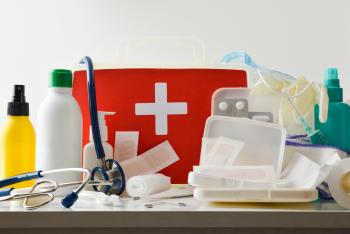Preventive health practices like regular exercise, balanced nutrition, routine screenings and stress...
Read More
The summer months are a great time for getting out of the house and staying active. But no matter how much we prepare, it’s easy to forget some safety essentials on the way out the door.

If this has happened to you, you’re not alone. In fact, emergency department and urgent care center visits are at their highest during the summer, and many of the cases involve children.
Here are a few simple fixes to prevent injury all summer long:
Grab the Sunscreen
We know the dangers of lifelong sun exposure and repeated sunburns, but sunburn can also pose a short-term risk. In serious cases, a single exposure can lead to a condition known as sun poisoning. Though there is actually no poison involved, severe sunburn can cause symptoms like blistering, swelling, headache, fever, chills, nausea, dizziness and dehydration.
Minimize your risk of over-exposure by packing the sunscreen and taking regular breaks in the shade.
Spray Away Bugs
Summer is bug bite season! Almost everyone has had minor bites and stings, whether from those pesky mosquitos, bees, spiders, ticks or ants. In most cases, bites and stings can be handled at home, but allergic reactions or infection are possible. Use a bit of bug spray on your family to scare them off. Dr. Evelyn Balogun, Inspira’s Medical Director for Urgent Care, has some words of caution about tick bites.
“Tick bites are generally painless but can result in localized as redness, swelling or soreness. The most concerning aspect of tick bites is the risk for transmission of illnesses such as Lyme Disease,” Balogun warns. “If you find a tick anywhere on your body, remove it promptly using fine tipped tweezers. Grasp the tick as close to the skin as possible and pull with a slow and steady motion.”
She explains that current guidance recommends against use of petroleum jelly or other solutions as a method of removing the tick while still attached. And, you should contact your doctor if unable to remove the tick, or if you have signs of a skin infection or develop a rash which gets progressively larger, develop flu-like symptoms, fever, chills, fatigue, muscle and joint pain, or headache.
Wear a Helmet
Hundreds of thousands of Americans receive treatment for traumatic injuries as a result of bicycle accidents each year. And according to the Centers for Disease Control and Prevention (CDC), only half of Americans wear helmets when riding a bike, and half of those cyclists without protective gear are children or young adults.
Whether you are cycling, riding a scooter or skateboarding, quality protective gear is important to keep your brain, bones and joints safe.
Fill Your Water Bottle
Even if you remember your sunscreen and take frequent breaks, the heat and sun still take their toll on our bodies. Dehydration occurs when your body uses more water than it receives, slowing down our internal systems.
Keeping a bottle of water handy gives you the chance to replenish your body’s stock on even the hottest days. But if you experience dehydration symptoms like muscle cramps, headaches or nausea, be sure to avoid sugary drinks and alcohol, as those can often contribute to the condition and slow recovery.
Inspira offers convenient urgent care locations, open 7 days from 8 am to 8 pm. Check wait times and get in line before you leave home.

Preventive health practices like regular exercise, balanced nutrition, routine screenings and stress...
Read More
Knowing basic first aid can significantly improve your ability to respond to emergencies, from...
Read More
Following up with your primary care provider after an emergency department visit is essential for...
Read More
The material set forth in this site in no way seeks to diagnose or treat illness or to serve as a substitute for professional medical care. Please speak with your health care provider if you have a health concern or if you are considering adopting any exercise program or dietary guidelines. For permission to reprint any portion of this website or to be removed from a notification list, please contact us at (856) 537-6772